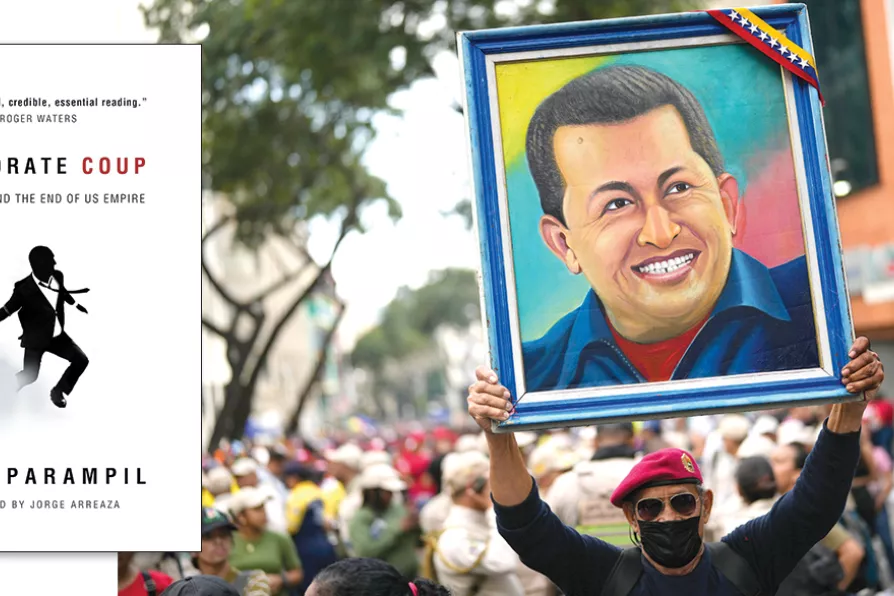CHRIS SEARLE speaks to Nicaraguan guitarist OMAR RIOS MELENDEZ

 CHAVEZ FOREVER: A rally by Chavistas in Caracas supporting the new proposed legislation: ‘Against fascism, neofascism and similar expressions,’ August 23 2024
CHAVEZ FOREVER: A rally by Chavistas in Caracas supporting the new proposed legislation: ‘Against fascism, neofascism and similar expressions,’ August 23 2024
Corporate Coup: Venezuela and the End of US Empire
by Anya Parampil
OR Books £19.99
WHILE blanket Western outrage at the outcome of Venezuela’s recent elections offers more than a lesson in US imperial rabble-rousing, it can also teach us about how language is infused with power.
It can warn us, for example, about the continued dangers of swallowing Washington’s deceitful definition of democracy without reading the list of toxic ingredients on the packet.
Take the astonishing lengths to which the compliant Western media have gone to dismiss President Nicolas Maduro as a totalitarian tyrant — not least since the July 28 poll — eloquently unravelled in the Morning Star by Roger Harris and Peter Bolton.

International solidarity can ensure that Trump and his machine cannot prevail without a level of political and economic cost that he will not want to pay, argues CLAUDIA WEBBE

GAVIN O’TOOLE welcomes, and recommends a a candid, evidence-based record of Britain’s role in the slaughter visited by Israel upon the Palestinians

The global left must be unwavering in it is support for Venezuela as Washington increases its aggression, and clear-eyed about the West’s cynical motives for targeting it, says CLAUDIA WEBBE

US baseless accusations of drug trafficking and the outrageous putting of a bounty on a president of a sovereign country do not bode well, reports PABLO MERIGUET










